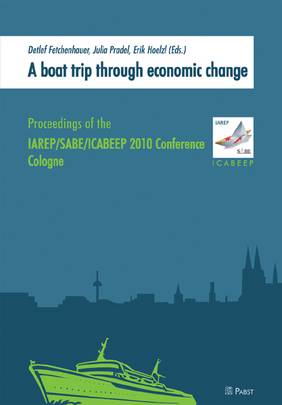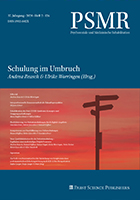"Previous research has shown that people systematically underestimate the trustworthiness of others. For example, in binary trust games participants consistently underestimate the number of trustworthy interaction partners. It has been argued that this effect is one example of error management theory: Humans might systematically underestimate others trustworthiness as a means to avoid costly mistakes ("better safe than sorry)," Detlef Fetchenhauer and colleagues (Cologne) report.
On a more proximate level, the authors have shown "that this cynicism might be due to the fact that life informs us about our mistakes in a rather asymmetric way: When we trust someone unwarrantedly, life will inform us about that mistake. However, in most cases we will never come to know that a person we did not trust on a behavioral level would actually have turned out to be trustworthy. As Fetchenhauer and Dunning show, participants tendency to underestimate others trustworthiness vanishes in a simulated repeated trust game if they are informed about an interaction partners trustworthiness irrespective from whether they trusted that interaction partner or not."
The main hypothesis "states that the degree of both trust and trustworthiness will steadily decline when participants are neither informed about the trustfulness nor the trustworthiness of their interaction partners. To the contrary, we expect that the degree of both trust and trustworthiness will steadily increase when participants are informed about the degree of trustfulness and trustworthiness of their interaction partners."






















